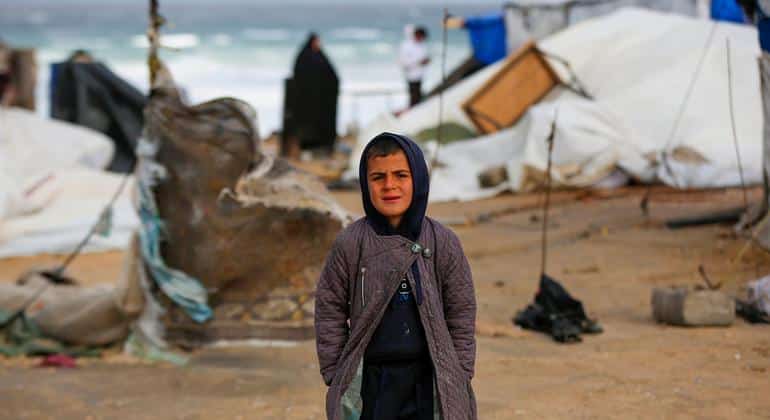The intense winter storms have hit hundreds of families in Gaza hard, forcing them to face adversity in precarious conditions. The situation is especially serious in areas like Deir al-Balah and in the northern strip, where many are living in makeshift tents made of tarps and plastics. As the storms pass, many of these shelters have become unusable, forcing residents to seek alternatives in the midst of a devastated environment.
In response to this crisis, UN teams are preparing to deliver 1,500 tents. This effort aims to help those returning to the northern Gaza strip, where they are faced with the harsh reality of their homes in ruins. Since a ceasefire was established on January 19, thousands of trucks carrying humanitarian aid have been introduced into the region; however, the demand is so overwhelming that a sense of hopelessness still persists.
Rosalía Bollen, UNICEF representative, expressed concern about the extreme conditions facing the affected families. “There is a winter storm. It is incredibly cold. I have no idea how people can sleep at night in their makeshift tents,” she commented. Many of those who have returned have had to build temporary structures on the rubble of what were once their homes.
Despite the efforts of humanitarian agencies, the situation remains critical. Bollen emphasizes that, although assistance has increased, “needs are skyrocketing” and humanitarian workers face enormous obstacles in reaching those most in need. The UN Relief and Works Agency for Palestine Refugees (UNRWA) is working tirelessly to provide food and water to families and children who have made long journeys back to their homes. Since the ceasefire began, UNRWA has opened ten emergency shelters and distributed over 16,000 waterproof tarps, blankets, and winter clothing to alleviate the suffering of the population.
Meanwhile, around 40,000 Palestinian refugees have been displaced in the West Bank due to the escalation of Israeli military operations. This increase in violence has led to several refugee camps being practically deserted. Since the “Iron Wall” operation began on January 21, people in areas like Jenin, Tulkarm, Nour Shams, and El Far’a have had to leave their homes.
Israeli forces have intensified their operations in the region since mid-2023, resulting in the forced displacement of thousands of families, leaving the northern refugee camps in uninhabitable conditions. The situation in Gaza and the West Bank is becoming increasingly dire, with a growing humanitarian need that demands an urgent and effective response from the international community.
via: MiMub in Spanish










